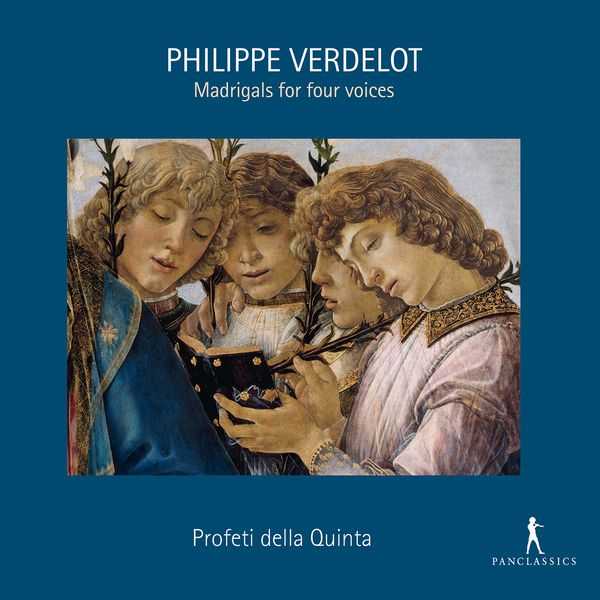
Composer: Philippe Verdelot
Performer: Profeti Della Quinta, Giovanna Baviera, Anna Danilevskaia, Elizabeth Rumsey, Leonardo Bortolotto
Format: FLAC (tracks)
Label: Pan Classics
Catalogue: PC10422
Release: 2021
Size: 235 MB
Recovery: +3%
Scan: yes
01. Se l’ardor foss’equale
02. Se mai provasti donna
03. Gloriar mi poss io donne
04. Igno soave
05. Io son tal volta
06. Divini occhi sereni
07. Trist’Amarilli mia
08. Ognor per voi sospiro
09. Madonna qual certezza
10. Madonna per voi ardo
11. Se dimostrarvi a pieno
12. Si lieta e grata morte
13. Deh perche si veloce
14. Quando amor i begli occhi
15. Non vi fidate o simplicetti amanti
16. Con lagrime et sospir
17. Fuggi, fuggi, cor mio!
18. Con soave parlar
19. Passer mai solitario in alcun tetto
20. Benchè’l misero cor
21. La bella man mi porse
22. Gran dolor di mia vita
Philippe Verdelot played a very important role in the development of the madrigal during the Italian Renaissance. Born in France, he probably moved to Italy at a young age. From 1522 onwards, he held the most important positions in church music in Florence – first he was maestro di capella at the Baptistery of Florence Cathedral, and a year later also at the Cathedral itself. After 1530, with the riots surrounding the expulsion of the Medici family and the siege of the city, all biographical traces are lost, and no works created after these events seem to have survived.
In the years before, however, Verdelot had initiated important musical developments with his madrigals, which at that time were the most published in Italy. The Ensemble Profeti della Quinta presents a selection of four-part madrigals from an anthology published posthumously (1540, 1565). A special feature of their performance is that each singer reads from the originally notated single voice – unlike in a modern score with parts notated one above the other. The musicians must therefore listen to each other much more closely and be able to react spontaneously. This spontaneity can be felt throughout the recording, and takes the listener to the beginnings of the Italian madrigal in a very intense way.